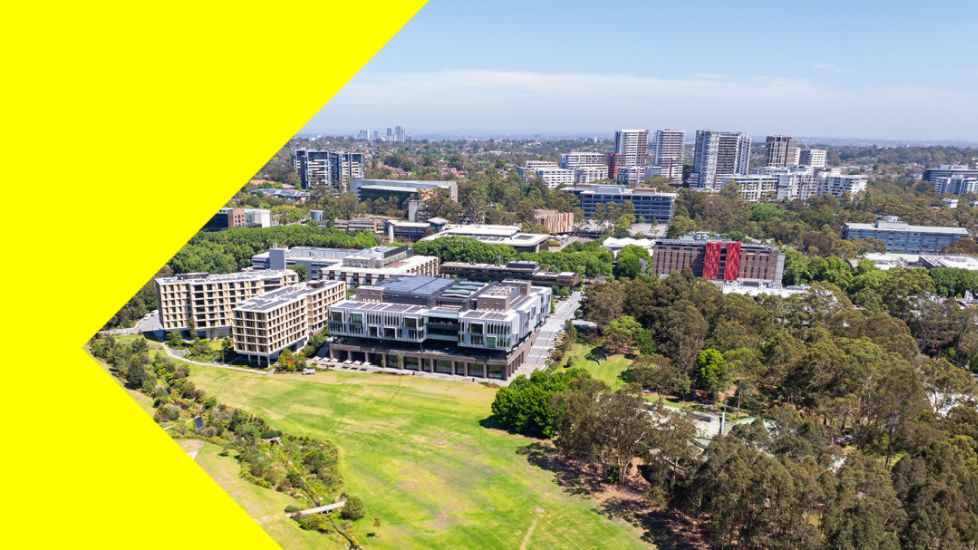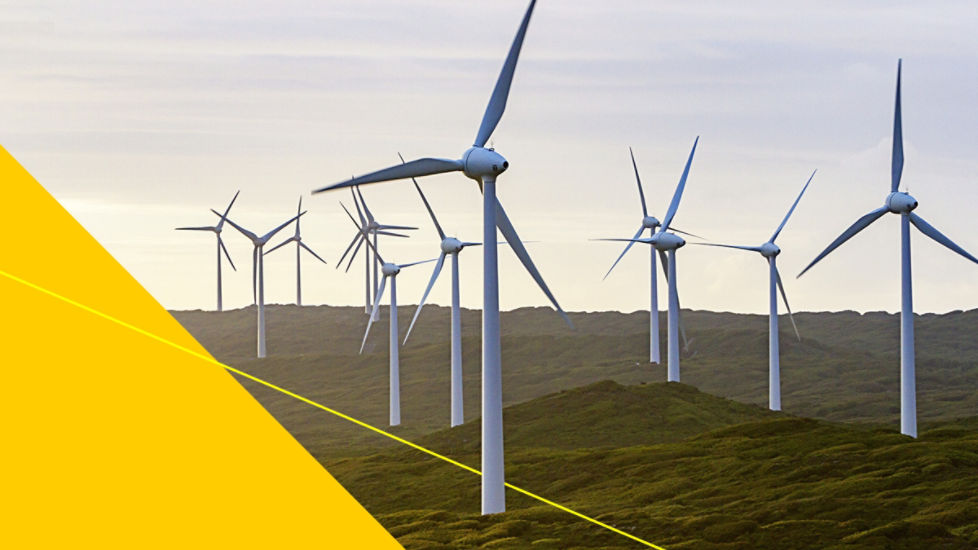At the Commonwealth Bank’s recent sustainability conference, ‘Financing Australia’s Transition’, four leading Australian businesses discussed how environmental, social and governance issues (ESG) are embedded throughout their business – from responding to customer feedback and seeking alternative materials through to innovative and substantial changes to how they run their business.
Brambles: a leader in reusable assets in the circular economy
Brambles’ circular business had inherently considered sustainability since its inception in the 1950s, long before ESG was a standard business practice. It now operates one of the largest circular business models in the world and circulates more than 330 million reusable assets in over 60 supply chains across Australia.
“The environmental benefits associated with a business model that shares and reuses resources is significant,” said Brambles’ Director of Sustainability, Lachlan Feggans. “It's upwards of 85 per cent carbon emissions savings and 95 per cent water and waste savings, so it's a really good starting point from a business-model perspective to make that transition to a more sustainable supply chain.”
Feggans said that the commercial benefits of running a circular business model were already clear last century. Still, they have become even more important in a carbon-constrained world. “Circular business models have inherent low-carbon outcomes, so [those benefits] are even more apparent from an economic perspective, and of course, a broader sustainability perspective,” he said.
Feggans also stressed the importance of engaging with investors to make a transparent commitment towards a sustainable future. “ESG investors really want to hear our story and understand why we're a sustainable company. We've also committed to becoming a regenerative organisation. Regeneration means creating more resources, more value, than what we need to run the business. Essentially, it means more trees, more carbon drawdown and less waste. This is really challenging for a global organisation like Brambles, but it's really exciting to be part of that movement because Regenerative businesses are what the world needs right now.
Fonterra: taking an environmental approach to food production
New Zealand dairy co-op Fonterra takes a multi-faceted approach to ESG, with a balanced scorecard covering the multiple “capitals” required for the organisation to prosper over time. They involve issues as diverse as employee wellbeing, climate impacts and animal welfare, with farm owners encouraged to implement best practice through incentives as well as rules.
“We've introduced the Cooperative Difference Payments which apply from this season, and that incentivises our farmers financially to achieve certain outcomes with regards to animal welfare, environmental quality and employee outcomes as well,” said Fonterra COO Fraser Whineray.
The dairy co-op is also investing in reducing its cows’ methane production which, whilst a short-lived gas, has a greenhouse impact approximately 20 times higher than carbon dioxide. Even though New Zealand dairy production has emissions 70% less than the world average, underpinned by the cows’ predominantly fresh grass diet, Fonterra is experimenting with innovative supplements. For example, it is testing “kowbucha”, which works like kombucha by changing the cows’ gut microbiome to reduce the amount of methane produced in the rumen.
Fonterra is far from being completely coal free for its processing, with nine of its 27 sites yet to be converted. It aims to reach the coal-free target by 2037 and has several alternative fuel trials underway to further reduce its transport emissions.
Coles: answering consumer demand for sustainable practices
Food retailers are in the spotlight for contributing to environmental impact, from energy consumption to waste and plastic packaging.
As Australia's 12th largest electricity user, Coles recently announced several ESG commitments, including net zero greenhouse gas emissions by 2050, 100 per cent renewable electricity by June 2025, and reducing its combined scope 1 and scope 2 emissions by more than 75 per cent by June 2030.
Coles General Manager of Sustainability and Property Services Kirsty Davis said the group has committed to end its popular plastic collectibles promotions and has removed single-use plastic tableware in response to customer feedback. Of 9,000 customers surveyed, their number one concern when it comes to environmental issues in retail was reducing waste to landfill and plastic packaging.
“Sustainability is really integrated into every single part of our organisation now. We reviewed our marketing campaigns through a sustainability lens, and we found that while the campaigns have been very popular, our customers are changing and that their priorities are starting to change,” Davis said.
Coles has committed to make all its Coles Own Brand and Coles Own Liquor Brand packaging 100 per cent reusable, recyclable or compostable by 2025 in line with the Federal Government's 2025 National Packaging Targets. “We’re constantly looking for new ways to reduce waste across the organisation,” Davis said.
Ramsay Health Care: linking financial and sustainability outcomes
Siobhan Leach, Group Sustainability Officer at Ramsay Health Care, said the group was also addressing the challenge of swapping out single-use plastics for more sustainable alternatives: “In Australia we’ve got to the point where we’ve kept more than 24 million pieces of plastic out of landfill.”
That includes seeking alternatives to single-use plastic consumables in a clinical environment where infection control is paramount – trialling reusable containers as a substitute for disposable wrap during the sterilisation process, for instance.
The company is also seeking to lower emissions in an energy-intensive sector by rolling out onsite renewables, with the goal of installing 6.3 megawatts in renewable energy projects by 2026.1
Ms Leach said that the group’s commitment to sustainability is reflected in its use of sustainability-linked finance, commencing with the establishment of its $1.5 billion Sustainability-linked loan in June 2021 and ESG derivative shortly afterward.
“Our Sustainability linked loan incorporates some of our Ramsay Cares targets around the mental health and well-being of our people, emission and energy intensity reduction, and a focus on our supply chains….,” she said. We then entered into one of Australia’s first ESG-linked interest rate swaps, which mirrors these targets with tangible and measurable benefits to our funding costs.”
“Linking financial products to our sustainability targets shows our people that we're serious about caring for our people, our communities and the planet.”
The ESG Experts
Lachlan Feggans, Director of Sustainability, Brambles
Lachlan is Director of Sustainability for Brambles Corporate and the Asia-Pacific region. He is responsible for co-designing and driving the global implementation of Brambles’ sustainability strategy including, all ESG/Sustainability communications and reporting, and developing Brambles’ response to Climate Change and the TCFD recommendations.
Kirsty Davis, General Manager - Sustainability & Property Services, Coles
With a broad background across customer, operations and transformation in both Investment and Business banking, Kirsty joined Coles in 2018. Over the past 3 ½ years, Kirsty’s role has expanded with the most recent addition being accountability for the Coles Group Sustainability strategy. In this role, Kirsty leads the Coles’ Group environmental sustainability journey and overall accountability for sustainability governance, reporting and assurance at Coles.
From her exposure to different industries, Kirsty has a strong understanding of different business functions and enjoys leading teams through accelerated change and ambiguity. Kirsty’s property services accountability compliments her sustainability focus. In this role Kirsty has accountability for Coles Group energy, resource recovery, construction, engineering, refrigeration, as well as supermarkets cleaning and trolley collection.
Kirsty is a member of the Coles Sustainability committee and chairs the Coles climate change sub-committee. Kirsty qualified as a chartered accountant while working at Deloitte and completed her studies at the University of Kwazulu-Natal, South Africa.
Siobhan Leach, Group Sustainability Officer, Ramsay
Siobhan Leach joined global health care provider, Ramsay Health Care, in 2020 as the Group Sustainability Officer. Ramsay Health Care provides quality health care through a global network of clinical practice, teaching and research. Employing over 80,000 staff, Ramsay Health Care’s global network extends across 10 countries, with over eight million patients across its facilities in over 480 locations.
Working with the global sustainability leads, Siobhan’s role is to deliver the Ramsay Cares sustainability strategy across three sustainability pillars of: caring for our people, caring for our planet and caring for our community. Siobhan has worked in sustainability and environmental management for over 20 years and has a wide range of experience in sustainability strategy, reporting and governance. Siobhan is excited to be working in the health care sector at this challenging time helping to deliver stronger communities, healthier people and a thriving planet.
Fraser Whineray, Chief Operations Officer, Fonterra
Fraser Whineray joined Fonterra in March 2020 as the Chief Operating Officer. He is responsible for our New Zealand manufacturing site and global supply chain operations, sustainability, innovation and R&D, IT and safety, quality and regulatory teams. Fraser joined our Co-op from Mercury, a 100% renewable electricity retailer and generator, where he was the Chief Executive from 2014 and held executive roles since joining the company in 2008.
Fraser is no stranger to the dairy industry. He started his career as a graduate of the New Zealand Dairy Board’s technical training programme and spent time at manufacturing sites that are now part of our Co-op, and also in Fonterra’s export markets. He has also worked in the investment banking and forestry industries, both in New Zealand and internationally.
Fraser is a keen advocate for astute long-term decisions that leverage New Zealand’s competitive advantages, including its people, for sustainable growth. He served as a Non-Executive Director of Opus International Consultants from 2008 – 2016 and of Tilt Renewables and Chaired the Prime Minister’s Business Advisory Council. In 2019 he was named the Deloitte Top 200 Chief Executive of the year.
Fraser holds an MBA from the University of Cambridge, a Bachelor of Chemical Engineering from Canterbury University and a Diploma in Dairy Science and Technology from Massey University.
Want to speak to one of our Sustainable Finance specialists? Contact us




